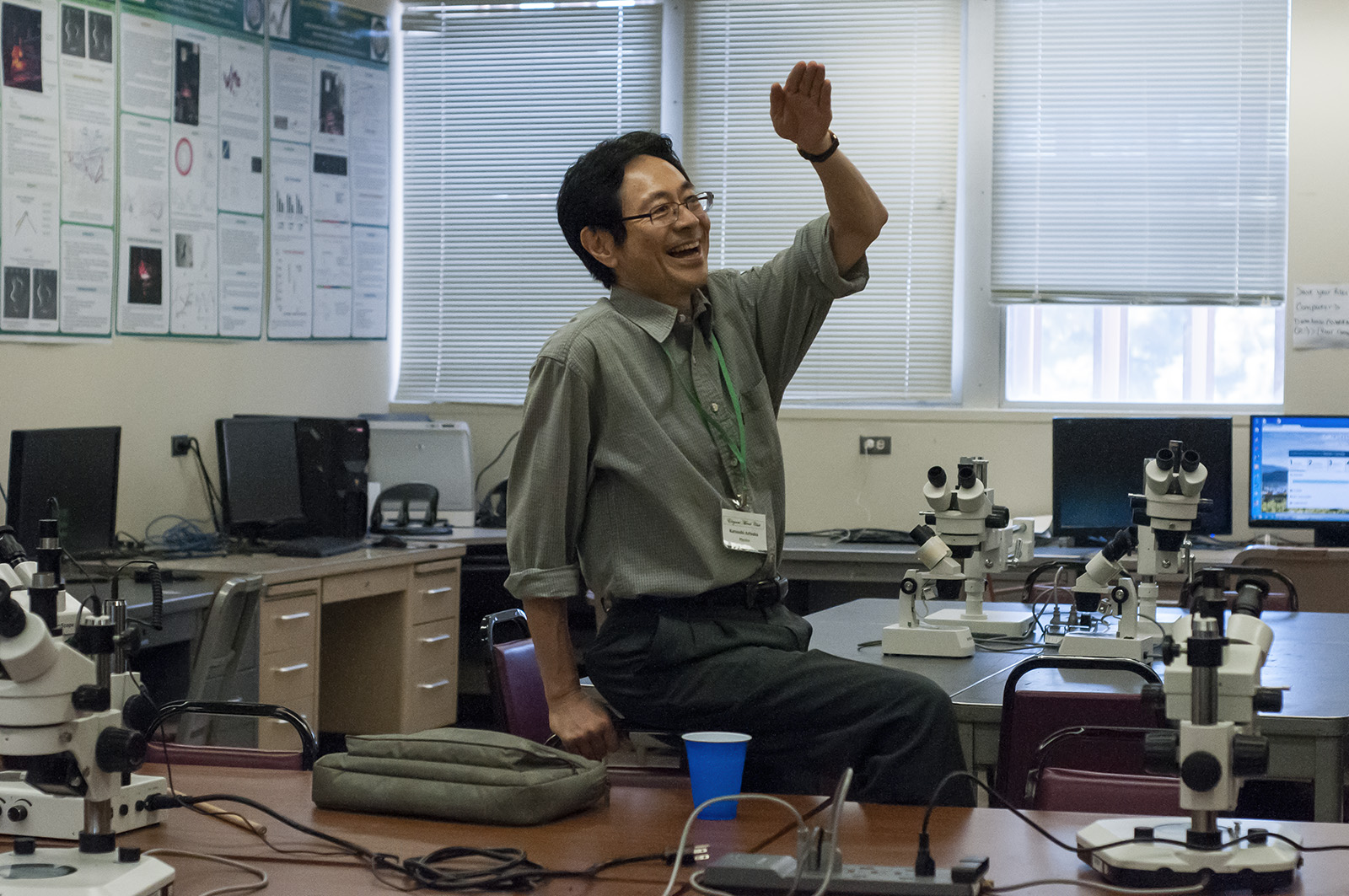Elegant Mind Club members win Dean’s Prizes for research presentation

(Esmeralda Lopez/Daily Bruin) Katsushi Arisaka created Elegant Mind Club to study the neurons of a type of roundworm.
By William Zou
June 4, 2017 11:48 p.m.
Members of one of UCLA’s largest science research clubs received two Dean’s Prizes this year.
Elegant Mind Club, a research group that studies the neural networks of roundworms to better understand the human nervous system, had two of its members, Suying Jin, a fourth-year physics student, and Myki Lee, a fourth-year neuroscience student, received the Dean’s Prize for excellence in presenting faculty-mentored research May 26.
Katsushi Arisaka, a physics professor, founded Elegant Mind Club in 2013 because he was interested in neuroscience but did not have experience in biology. Arisaka said he wanted to collaborate with undergraduate students in the life sciences, teach them leadership and scientific skills and give them a space to conduct their own research.
As a physics professor, Arisaka was initially inexperienced in experimental neuroscience, but Lee said the professor dove into scientific papers, textbooks and his own background in particle physics to gain a greater understanding of neuroscience in order to begin the club and work with life sciences students.
Blake Madruga, a graduate student in electrical engineering who joined the club when it was founded, said the club began as an open environment to start new experiments in physics, biology and neuroscience, all using C. elegans, the roundworm.
Madruga said he thinks traditional laboratory settings restrict undergraduate researchers because they have to work with more experienced graduate and postdoctoral researchers. In contrast, he said Elegant Mind Club gave students the freedom to pursue their own projects.
For example, with Arisaka’s training, Madruga created a microscope called the MALIBU, a fast and finely tuned microscope capable of observing tiny particles. This device allowed the researchers to gain a better understanding of the primitive neural circuits of C. elegans and could help scientists better understand the human mind.
After the club developed the microscope, the National Science Foundation gave it a grant of more than $500,000 that helped the club conduct more complex experiments and admit more student members.
Lee’s own Dean’s Prize-winning study focuses on the function of the Central Pattern Generator, the network that manages human physical bodily processes. Lee said his group studied the neurons of C. elegans as a model for the human CPG, but other student groups use the roundworm for other purposes in their own experiments.
“Much of the Elegant Mind Club is self-sustaining and self-organized,” Lee said. “Students would take the main concepts that the professor taught them to organize their groups and conduct their own research.”
Arisaka said various members of his lab are graduating, so he hopes to maintain and expand their research by recruiting new undergraduates next year.


